Discovering the Traditional Crafts of Bhutan
Dec 3, 2024 | By Piz za
Bhutan, often referred to as the “Land of the Thunder Dragon,” is a small, landlocked country in the Eastern Himalayas known for its rich cultural heritage and unique approach to development, prioritizing Gross National Happiness over Gross Domestic Product. Central to Bhutan’s cultural identity are its traditional arts and crafts, collectively known as Zorig Chusum, which translate to “the thirteen crafts.” These crafts are not merely artistic expressions but are deeply interwoven with Bhutanese spirituality, history, and daily life.
Historical Context and Significance
The origins of Zorig Chusum trace back to the 15th century and are attributed to Pema Lingpa, a revered saint and artist in Bhutanese history (Daily Bhutan). However, it was during the reign of the fourth Desi, Tenzin Rabgye, in the 17th century, that these crafts were formally categorized into the thirteen distinct forms we recognize today (Druk Asia). This categorization was a significant step in preserving and promoting these crafts as an integral part of Bhutan’s cultural heritage.

The Zorig Chusum are deeply rooted in Bhutanese spirituality, heavily influenced by Buddhism, which is evident in the motifs and purposes of many craft items (Truly Bhutan). These crafts serve not only as artistic expressions but also as functional items in religious and domestic settings, thus playing a crucial role in the everyday lives of the Bhutanese people.
Traditional Crafts
1. Shingzo (Carpentry)
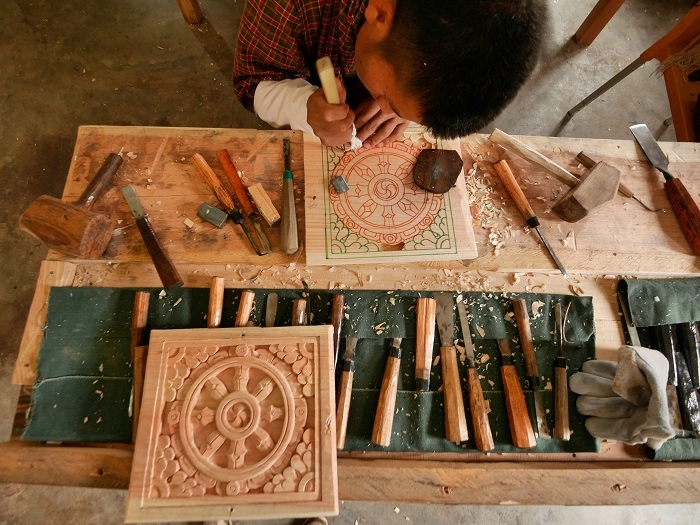
Carpentry in Bhutan stands out due to its unique architectural style that relies on intricate joinery rather than nails or screws. Traditional Bhutanese houses, dzongs (fortresses), and temples showcase this craftsmanship, with elaborately carved wooden components forming the framework. The design not only emphasizes beauty but also durability, reflecting Bhutan’s commitment to sustainability and harmony with nature. The skills of Shingzo are passed down through generations, ensuring that the Bhutanese architectural identity is preserved.
2. Dozo (Masonry)

Masonry, or Dozo, involves the careful shaping and layering of stones to create robust structures like dzongs and chortens (stupas). These stone structures often hold religious and historical significance, standing as testaments to Bhutan’s cultural legacy. Masonry also represents a practical adaptation to Bhutan’s rugged Himalayan terrain, where stones are a readily available resource. The durability of these structures underscores the Bhutanese emphasis on long-term utility and resilience.
3. Parzo (Carving)

Parzo encompasses the art of carving intricate designs on wood, slate, and stone. This craft is integral to the creation of religious artifacts, such as wooden blocks used for printing sacred texts or slate carvings depicting Buddhist deities. The detailed workmanship reflects both the artisan’s skill and their devotion, as many of these pieces hold religious significance. Parzo carvings are often seen adorning temples and dzongs, adding to their spiritual and aesthetic allure.
4. Lhazo (Painting)

Lhazo, the art of painting, plays a prominent role in Bhutanese spirituality and culture. This craft includes the creation of thangkas (religious scroll paintings) and temple murals, which often depict Buddhist teachings and deities. These artworks not only serve a decorative purpose but also act as tools for meditation and education. The vibrant colors and precise details of Lhazo paintings demonstrate the profound connection between art and religion in Bhutanese society.
5. Jinzo (Sculpting)

Jinzo involves the creation of religious statues and clay figures that are central to Buddhist worship. These sculptures are painstakingly crafted by skilled artisans who use natural materials such as clay, wood, and stone. From small household icons to towering temple statues, Jinzo pieces reflect the spiritual dedication of the artisans. Each sculpture is considered a sacred object, imbued with religious significance and used in daily prayers and rituals.
6. Lugzo (Bronze Casting)

Lugzo showcases the metallurgical expertise of Bhutanese artisans, who use bronze to create religious statues and ritual objects. The process requires precision and patience, as molten bronze is poured into molds to produce intricate designs. From ceremonial bells to Buddha statues, Lugzo items are cherished for their craftsmanship and spiritual value. This craft demonstrates the Bhutanese ability to merge technical skill with artistic expression.
7. Tsharzo (Cane and Bamboo Work)
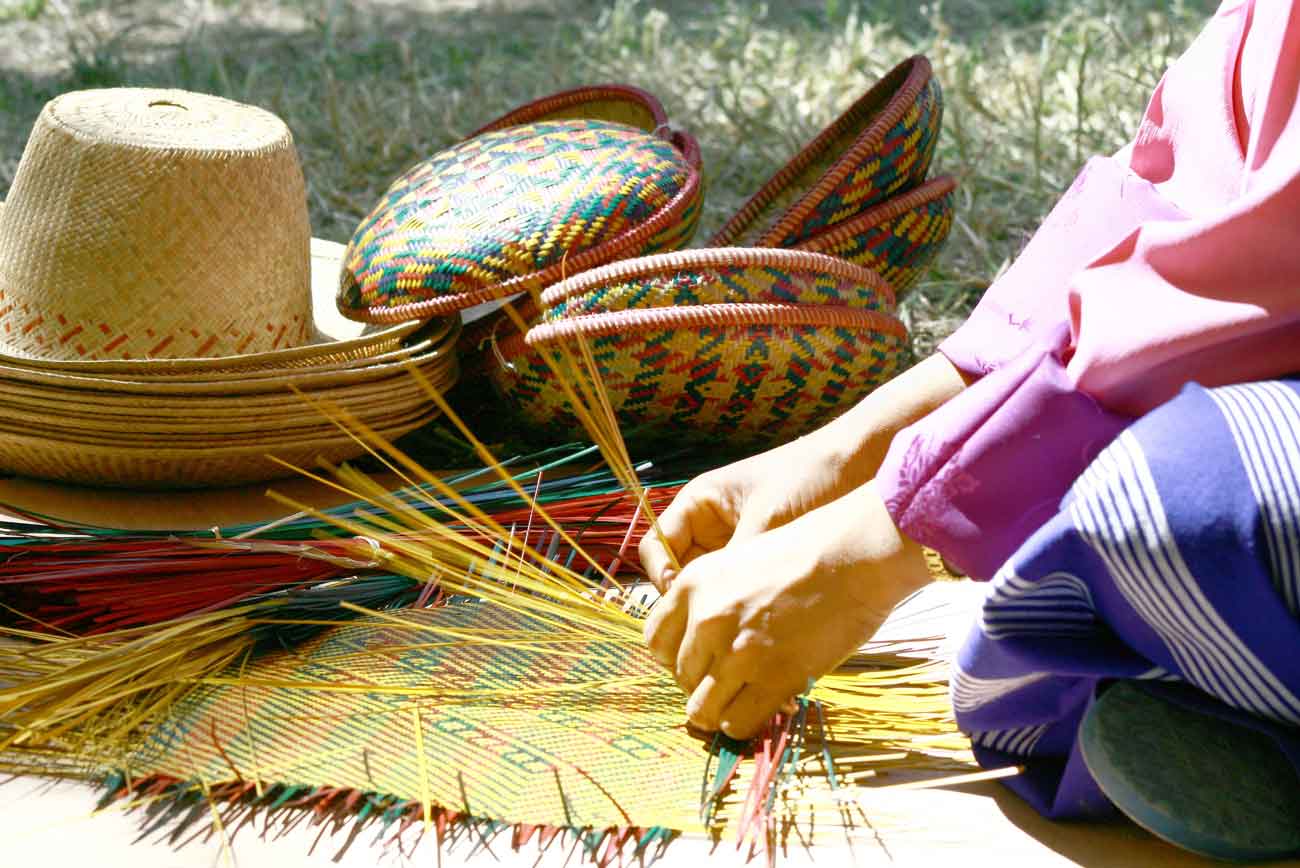
Tsharzo involves weaving bamboo and cane into functional items like baskets, mats, and hats. This craft is particularly sustainable, as it utilizes locally sourced, renewable materials. The lightweight and durable products of Tsharzo are widely used in Bhutanese households, reflecting the practicality and resourcefulness of this tradition. Bamboo weaving also aligns with Bhutan’s philosophy of living harmoniously with nature.
8. Shagzo (Woodturning)

Shagzo focuses on shaping wood into functional and decorative items such as bowls, cups, and containers. The craft often incorporates intricate patterns and finishes, including lacquer work that enhances durability and aesthetic appeal. Shagzo products are highly regarded for their blend of utility and artistry, making them staples in Bhutanese homes and a popular choice for visitors seeking authentic souvenirs.
9. Garzo (Blacksmithing)

Garzo, the art of blacksmithing, produces tools and weapons essential to traditional Bhutanese life. Artisans craft knives, farming implements, and ceremonial items, blending practicality with cultural symbolism. Blacksmithing is a labor-intensive process that highlights the artisans’ resilience and skill. Today, Garzo continues to play an important role, with modern adaptations ensuring its relevance in contemporary Bhutan.
10. Troeko (Gold and Silver Smithing)
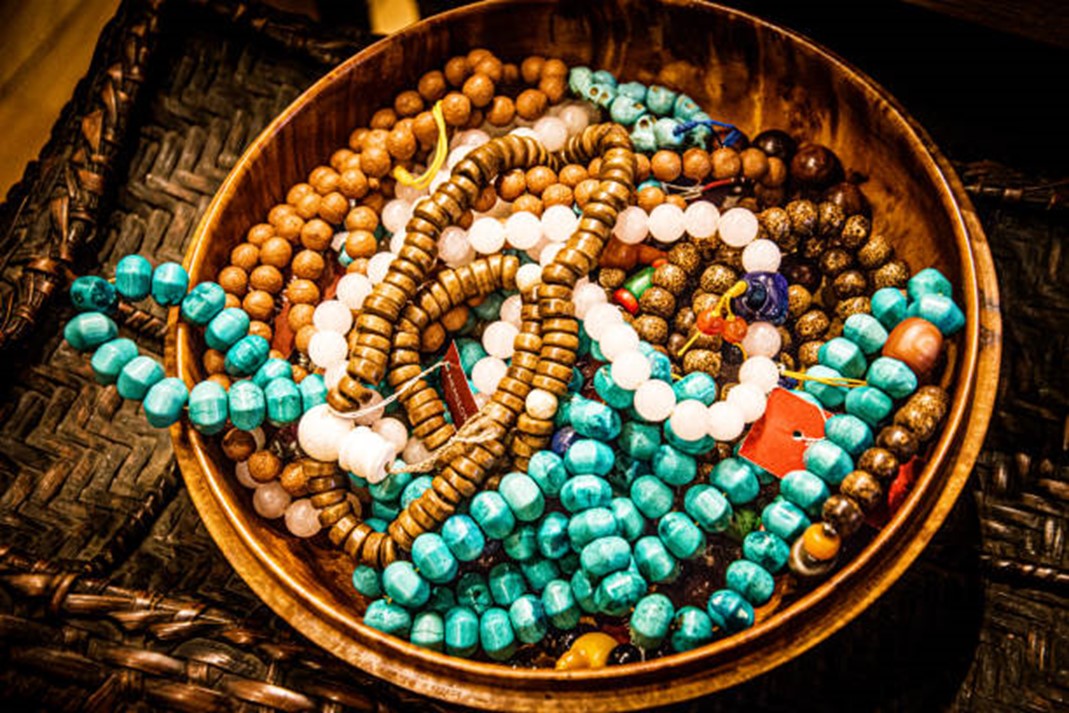
Troeko represents the pinnacle of Bhutanese metalwork, involving the crafting of intricate jewelry, religious items, and ceremonial objects. Artisans use techniques passed down through generations to create masterpieces that are both ornamental and symbolic. Gold and silver smithing reflects Bhutan’s artistic sophistication and the cultural importance of adornment in rituals and celebrations.
11. Thagzo (Weaving)

Weaving is one of Bhutan’s most celebrated crafts, with each region showcasing unique patterns and styles. Artisans use traditional looms to create textiles that are integral to Bhutanese attire, such as the gho (for men) and kira (for women). The vibrant colors and intricate designs of Thagzo fabrics make them highly prized, symbolizing Bhutanese identity and creativity.
12. Tshemzo (Embroidery and Tailoring)
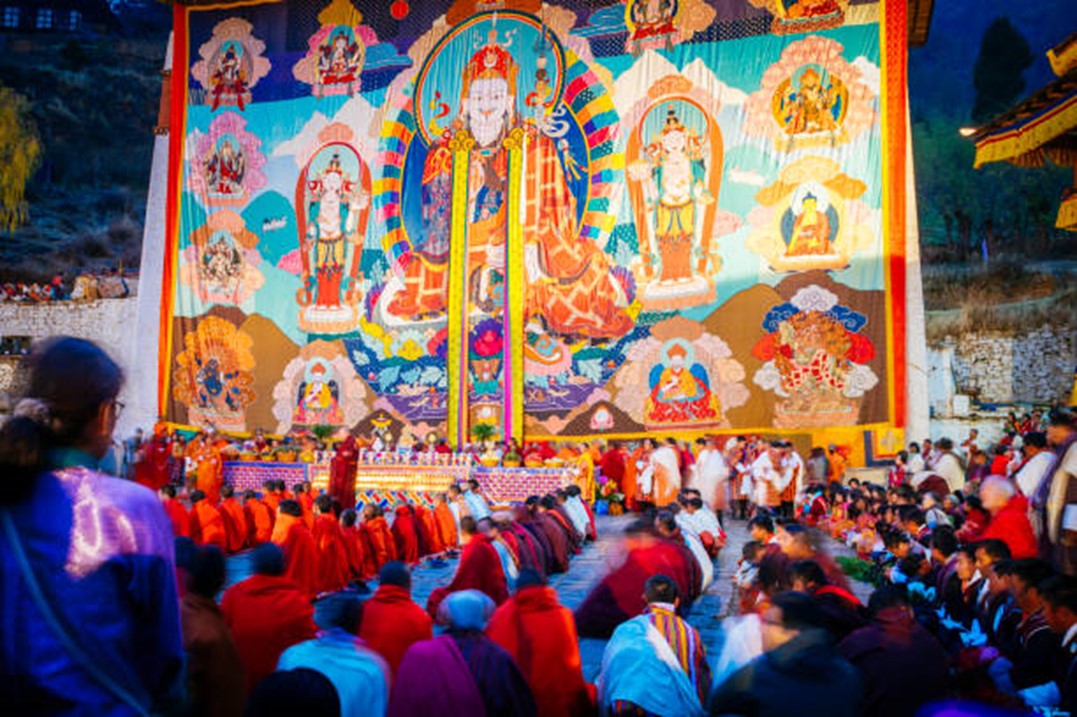
Tshemzo involves the creation of elaborate garments, religious banners, and decorative items. This craft requires exceptional attention to detail, as artisans stitch intricate patterns that often carry symbolic meanings. From ceremonial robes to prayer flags, Tshemzo products highlight Bhutan’s cultural richness and the artisans’ dedication to their craft.
Cultural Importance and Modern Relevance
The Zorig Chusum are not only a testament to Bhutan’s artistic heritage but also a vital part of its cultural identity. These crafts serve as a bridge between Bhutan’s past and its future, preserving traditional knowledge while also adapting to modern needs (Bhutan Talent Directory). As Bhutan continues to modernize, these crafts remain a source of national pride and a means of sustaining cultural continuity.
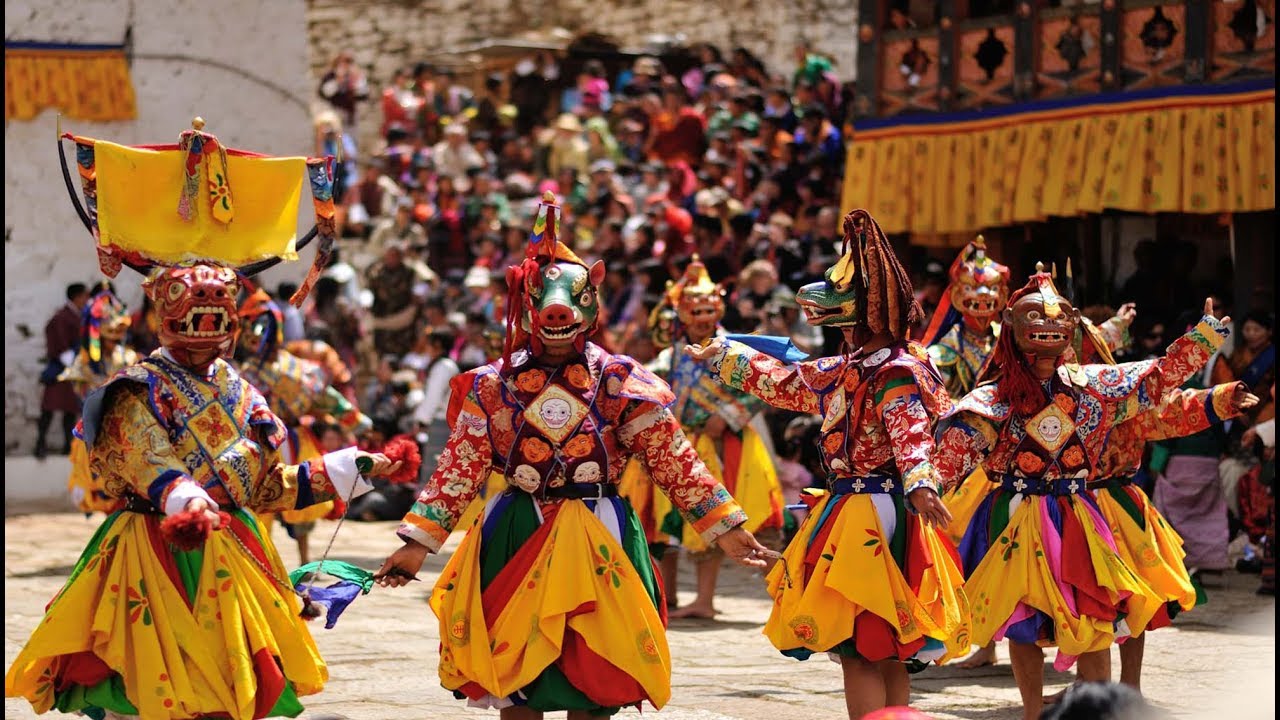
Efforts to preserve and promote these crafts are evident in institutions like the National Institute for Zorig Chusum, which trains young Bhutanese in these traditional skills. This not only ensures the survival of these crafts but also provides economic opportunities for artisans.
Bhutan’s Must-Visit Destinations for Culture and Heritage Enthusiasts
Bhutan’s rich cultural tapestry and stunning natural landscapes make it a dream destination for those seeking to experience the beauty of tradition and spirituality. Here are some of the country’s most remarkable places to explore:
1. Thimphu
- National Institute for Zorig Chusum: Witness young artisans training in Bhutan’s traditional crafts, preserving and passing on the legacy of Zorig Chusum.
- Tashichho Dzong: This iconic fortress is a masterpiece of Bhutanese architecture and a vibrant center of religious and administrative activities.
2. Paro
- Taktsang Monastery (Tiger’s Nest): Perched dramatically on a cliffside, this sacred site offers breathtaking views and profound spiritual significance.
- Rinpung Dzong: Known for its exquisite woodwork and murals, this fortress is a testament to Bhutan’s artistic heritage.
3. Punakha
- Punakha Dzong: Often called the “Palace of Great Happiness,” this dzong showcases stunning craftsmanship and picturesque surroundings at the confluence of two rivers.
- Suspension Bridge: Experience a walk across one of the longest suspension bridges in Bhutan, surrounded by scenic landscapes.
4. Bumthang
- Jambay Lhakhang: One of Bhutan’s oldest temples, it holds deep spiritual significance and intricate artistry.
- Kurjey Lhakhang: A revered pilgrimage site believed to contain the imprint of Guru Rinpoche.
5. Trongsa
- Trongsa Dzong: A historical and architectural marvel that played a key role in Bhutan’s unification.
- Ta Dzong: This watchtower-turned-museum offers insight into Bhutan’s royal and cultural history.
Conclusion
In conclusion, the traditional crafts of Bhutan offer a window into the nation’s soul, reflecting its values, beliefs, and way of life. As Bhutan navigates the challenges of modernization, the Zorig Chusum remain a cornerstone of its cultural heritage, embodying the resilience and creativity of its people.
Related Blogs

India vs New Zealand: A Traveler’s Perspective on Two Unique Destinations
India vs New Zealand are two destinations that offer contrasting yet equally mesmerizing experiences. India vs New Zealand comparisons often highlight India’s centuries-old traditions, bustling bazaars, and architectural marvels versus New Zealand’s breathtaking natural landscapes and adrenaline-pumping adventures. Whether you’re a culture enthusiast, nature lover, or thrill-seeker, this guide will help you explore the best […]

Barbastro Barcelona: A Journey Through Spain’s Hidden Gems
Spain is a treasure trove of culture, history, and breathtaking landscapes. Two destinations that encapsulate the country’s charm are Barbastro Barcelona. While Barcelona is renowned for its vibrant city life and iconic architecture, Barbastro offers a quieter, more traditional Spanish experience nestled in the heart of the Somontano wine region. Together, they create the perfect […]

The Complete Guide to the Carry On Cast: Past, Present, and Future
The Carry On films stand as a cornerstone of British cinema, delivering decades of laughter and unforgettable characters. This iconic comedy franchise, spanning over 30 years, combined slapstick humor, clever wordplay, and a talented ensemble cast that became household names. This guide explores the history of the Carry On cast, their contributions to the franchise, […]

Exploring Austria’s Iconic Opera Houses
Austria, a nation steeped in a rich cultural heritage, stands as a beacon of classical music and artistic excellence. Among its most revered cultural institutions are its opera houses, which serve as both architectural marvels and stages for world-class performances. This report delves into the history, architecture, notable performances, and cultural significance of Austria’s iconic […]

Exploring the Distinctive Andean Music of Bolivia
The Andean music of Bolivia is a vibrant and integral part of the country’s cultural tapestry, deeply rooted in the traditions and spiritual practices of the Andean peoples. This genre of music is not only a form of artistic expression but also a medium through which the stories, legends, and historical narratives of the Aymara […]

Learning About the Carnival Culture in Rio de Janeiro, Brazil
The Rio de Janeiro Carnival, often heralded as the world’s largest and most famous carnival celebration, is a vibrant showcase of Brazilian culture, history, and community spirit. This annual event, which draws millions of participants and spectators from around the globe, is a testament to Brazil’s rich cultural heritage and its capacity for joyous celebration. […]

Mastering Mozzarella: A Taste of Italy
Mozzarella, a semi-soft cheese originating from Italy, is cherished for its creamy texture and mild flavor. Traditionally crafted from buffalo milk, it also finds a popular variant made from cow’s milk. This cheese is not just a culinary staple but a cultural icon, deeply embedded in Italian society and cuisine. Its high moisture content contributes […]

Discovering the Art of Calligraphy in South Korea
Korean calligraphy, known as “Seoye” (서예), stands as a testament to the rich cultural heritage and artistic expression of Korea. This ancient art form, which involves the artistic writing of both Hanja (Chinese logographs) and Hangul (the Korean native alphabet), transcends mere communication to become a profound medium of aesthetic and spiritual expression. As we […]

Scotland’s Tartan: A History of Highland Dress
Tartan, with its vibrant patterns and historical richness, is one of Scotland’s most iconic symbols. It is inextricably linked to the kilt and the national dress of Scotland, embodying both cultural heritage and identity. This detailed report delves into the origins, evolution, and cultural significance of tartan and Highland dress, exploring how this textile has […]

Tribal Arts of Papua New Guinea: A Unique Heritage
Papua New Guinea (PNG) is a nation marked by its remarkable cultural diversity, with over 800 distinct tribes, each possessing its own language and customs. This diversity is vividly expressed through the tribal arts, which are not only a testament to the rich heritage of the indigenous people but also serve as a living tapestry […]

